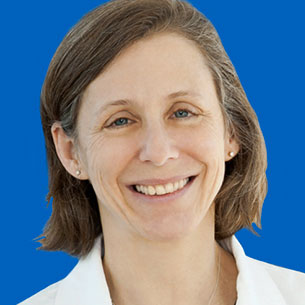Why do patients agree to go on cancer treatment clinical trials? We know that they choose to enroll for a lot of complicated reasons. As a physician and clinical investigator, it makes logical sense to me that patients with cancer want to take advantage of the best and newest treatments, even when unproven. Clinical trials allow them to have access to new drugs and combinations that may be helpful for their disease. But through my practice, I have encountered other motivations for going on clinical trials that have surprised me with their altruism and selflessness.
As a clinical investigator, I am running a clinical trial now that is a variation of a Phase 0 study; the study is written with the purpose of learning about how a new drug works at the level of blood and tissue, and taking the drug will not have any benefit at all for the patients who enroll in the study. In fact, the patients who go on the study incur a theoretical risk of being exposed to a cancer drug for which they will achieve no benefit, and they also have to agree to an extra tumor biopsy, which can be painful, as well as agree to multiple blood draws. Who would say “yes” to this?
Amazing, but a lot of women do. They come to my clinic with a new diagnosis of cancer to schedule a surgical procedure, and even with all the stress of that process, they agree to go on my study. Not all of them, but a large proportion of them. And they all say that they are doing it to help others. They really want to help advance the science and help future patients and this is pure: there is absolutely no benefit to them going on this study (real or imagined) and potentially some risk. There is no financial compensation. And yet, woman after woman tells me that “yes,” she will go on my study so that my group can learn more about her type of cancer for future patients. This altruistic behavior amazes and humbles me. I am grateful to these women and their sacrifice for the sake of science and for future women with cancer.
Last year, I visited one of my patients at home; she was on hospice and dying and could not come to see me. Before she went on hospice care, she was participating in a clinical trial, one that could have potentially benefited her. Sadly, she was still dying of her cancer. Yet, as we said our (last) goodbyes, she pulled me close to her and asked me if I was able to learn anything from her participation on the study; she wanted to know if she had helped anyone. And I told her: “yes, you did.”


Comments
Don S. Dizon, MD, FACP
Jun, 14 2013 5:57 PM
Dear Linda,
It is always a challenge to make sure our patients are truly informed, especially when they consent to do a clinical trial. I always worry that despite my conversations about the "unknowns" in clinical trials and the main endpoints of phase I versus II versus III trials, that patients come away hoping (sometimes against all hope) that they might stumble on their own cure. However, at the end of the day, I do marvel at those who choose clinical trials- as you say, it is altruism, amazing and humbling. I remember a patient who subsequently succumbed to breast cancer telling me that doing a trial was the best thing she could have done- even though it did not help her specifically, she felt she lent a small part towards an eventual cure.
Great post! DSD